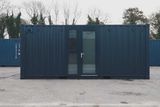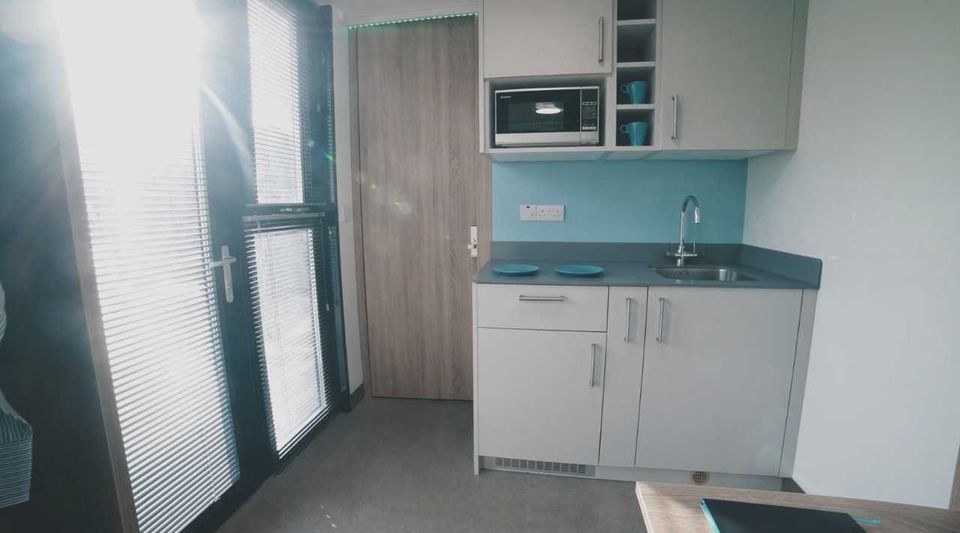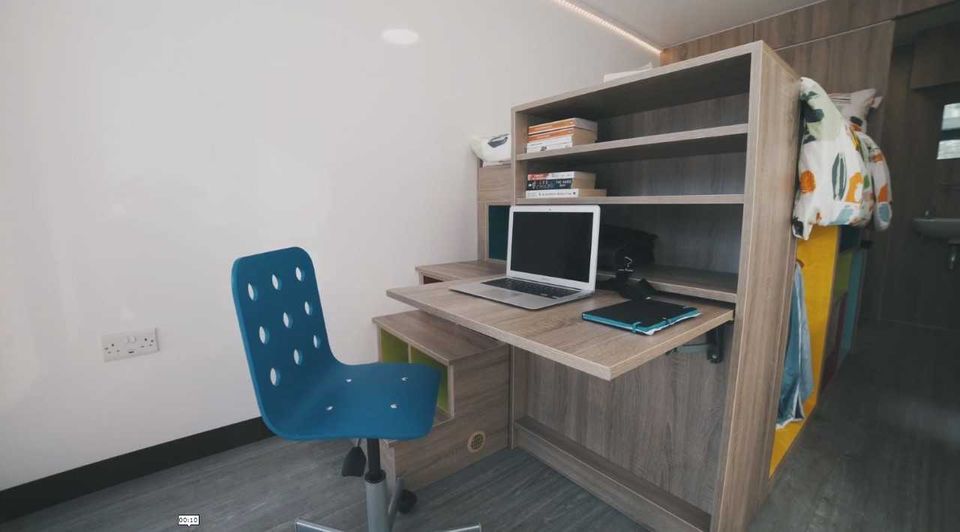The right moves: €1,000 a month for a container – could this be a short-term solution to the housing crisis?


Ivor Dougan is an engineer with diverse international experience, having taken lead engineering and project management roles in developments such as Disneyland Paris, the Jervis Street shopping centre in Dublin and Phase 2 of Liffey Valley shopping centre.
He is now convinced that shipping containers, converted into residential accommodation, can be a swift and practical solution to a large part of our housing crisis. I met him at a show unit in Dublin to hear more.
Dougan is collaborating with a company called boxacc.com to bring new products to market, and they are now importing containers from China and converting them into living accommodation. The unit I inspected measured 20 ft by 8 ft, with two glazed doors and provided a double bed, a living area with desk and bookshelves, a kitchenette and a separate toilet and shower.
I was pleasantly surprised at the high quality of the space which, although small, was at least to the standard of a modern budget hotel.
Inside container
Inside container
Paul McNeive
The units have connections for power, gas, water and drainage and can be 'standalone' or 'stacked', as required. There are a variety of sizes and finishes available.
Dougan told me that the units comply with all building control requirements in Ireland and Britain.
Michael Slattery Associates, Fire Safety Engineers, are part of the technical team.
He also told me that despite a lot of government intervention, he believes "the [property] industry is not recovering fast enough to create supply and prevent ever increasing rents - set to rise by another 25pc over the next two years."
He argues that the only viable solution is to "modulate the demand curve", by introducing this high-quality pod type accommodation.
Dougan suggests that the accommodation is particularly suitable for the type of tenants who spend only four or five nights in a city and return home at weekends. The units might also provide a welcome interim solution for a homeless person while they look for permanent accommodation.
Allowing a supply of these units on city centre sites could see rents for traditional properties fall, by reducing demand. It could also reduce traffic congestion, and protect Ireland's competitiveness, by easing the pressure on accommodation required by workers for overseas companies.
Agents estimate that the basic pod I viewed would fetch a rent of €1,000 per month, in a good city centre location, and the pods can be bought for approximately €35,000.
There is also the possibility for residents to rent out a pod in their garden, to subsidise their income.
The problem is planning permission, which is costly, takes time and rules out vacant sites awaiting development.
Dougan is suggesting the Government introduces a temporary licence - for say five years - to permit approved pods to be located on brownfield city centre sites, industrial sites and in private rear gardens.
Planning permission could be sought within that period, or the units removed after five years, if permission was refused.
He adds that Box Accommodation could provide 1,000 units within a year, and there are other suppliers in the market. He is willing to sell or lease pods, or will enter joint ventures with landowners.
Our slowly increasing new supply is not going to meet demand, and rents will continue to rise.
Radical solutions are needed and a licensing system for pods is the type of simple solution that will work.
What is there to lose?
How Diversity Will Benefit Your Organisation
When I was a trainee with Hamilton Osborne King (now Savills), I lost my legs in an accident.
Luckily for me, the firm took a very positive view about getting me back to work, and I would like to think that I repaid that trust by going on to lead the firm.
Given that experience, I am particularly honoured to be the keynote speaker at a conference called WorkABLE Future 2018 at Croke Park on the morning of March 27 next.
The conference is being run by the Employer Disability Information Service, which is a government initiative aimed at employers who want to find out more about how diversity can benefit their organisation, and what supports are available to access a heretofore untapped talent pool.
The conference is organised in partnership with Hays Recruitment and the Irish Wheelchair Association.
I strongly recommend attending this free event. For more information, visit employerdisabilityinfo.ie
info@paulmcneive.com
Join the Irish Independent WhatsApp channel
Stay up to date with all the latest news



















